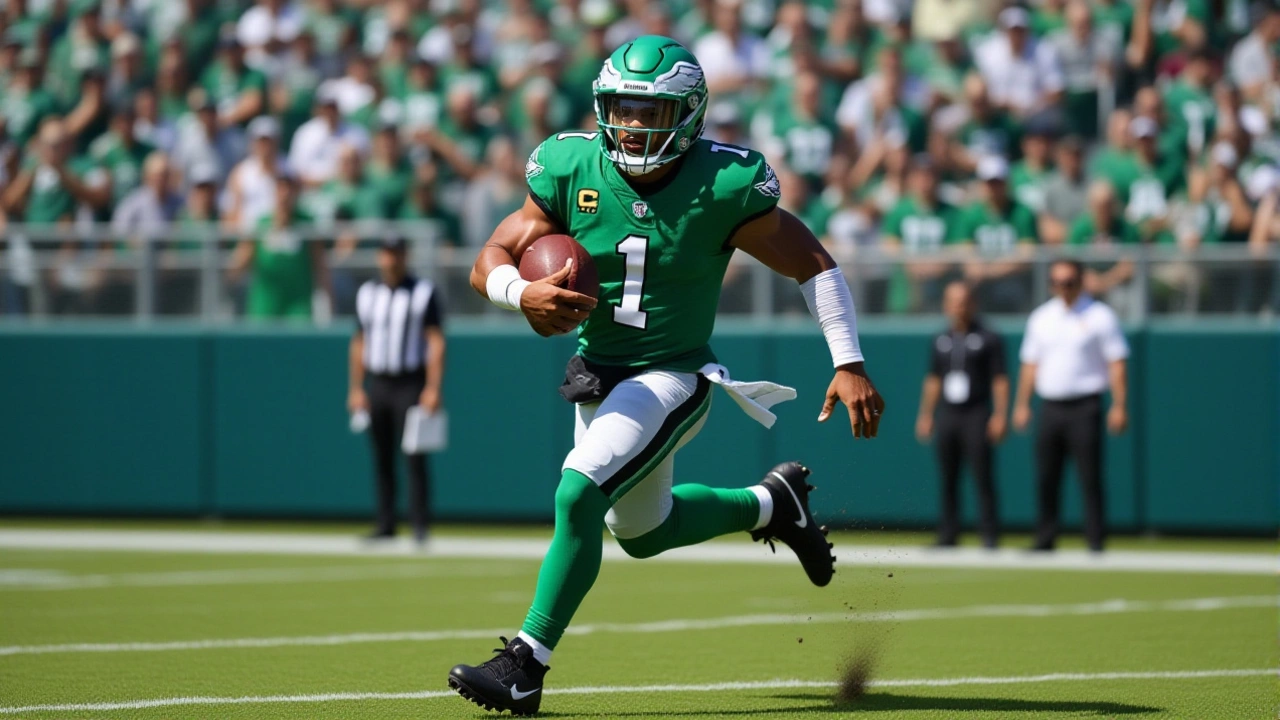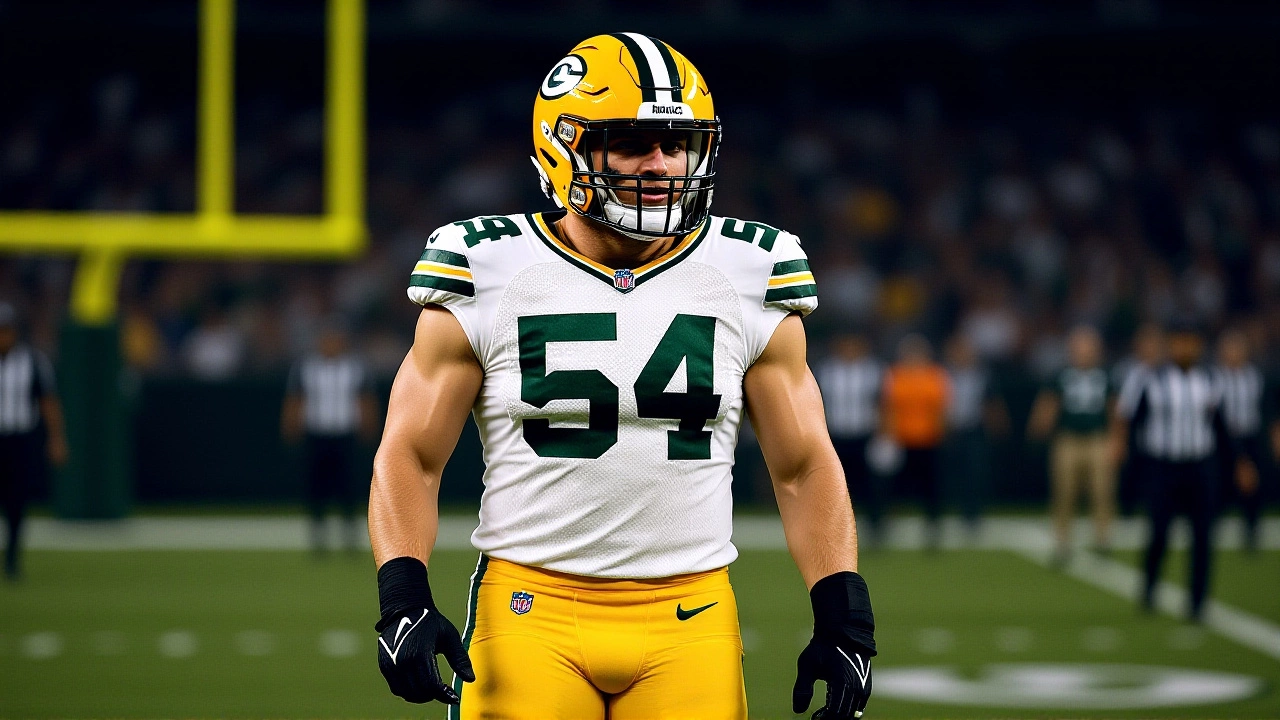The Green Bay Packers elevated veteran linebacker Kristian Welch from their practice squad for the Monday Night Football game against the Philadelphia Eagles on November 4, 2024, at Lincoln Financial Field in Philadelphia. The move, confirmed by the team’s official transaction report on November 3, was less about filling a defensive gap and more about plugging a critical hole on special teams — a unit that’s been the Packers’ most consistent strength this season. Welch, 26, brings exactly what the Packers needed: experience, reliability, and a proven track record on coverage units. He’s played for three teams this year alone — Denver, Baltimore, and now Green Bay — and has 27 special teams tackles over five NFL seasons. That’s not luck. That’s hustle.
Why Welch? It’s Not Just About Numbers
Welch isn’t a flashy name. He hasn’t recorded a sack this season. He hasn’t started a game on defense. But if you watch the tape, you’ll see him everywhere — chasing kickoffs, chasing punts, diving for loose balls. He’s the guy who tackles the returner before he even gets to the second level. That’s why Green Bay Packers special teams coordinator Rich Bisaccia, 63, chose him over younger, more athletic options on the practice squad. Welch knows the system. He played under the same scheme in 2023, appearing in 14 games exclusively on special teams. He’s not learning on the fly. He’s picking up where he left off.
And the timing couldn’t be better. The Philadelphia Eagles entered the game with Britain Covey, who averaged 24.8 yards per kickoff return. That’s dangerous. One misstep on coverage, one missed assignment, and you’re giving them field position in the red zone. Welch has faced Covey before — back when he was with Baltimore. He knows how he cuts, how he reads blocks. That’s value you can’t coach in a week.
Injury Chaos in Green Bay’s Receiving Corps
While Welch’s elevation was a special teams decision, it happened against the backdrop of a receiving corps in crisis. Starting wideout Dontayvion Wicks, 23, returned to practice on a limited basis after missing two games with a calf strain. He told reporters Saturday: “Injuries, they’re frustrating but, at the end of the day, I’ve got to do what I’ve got to do to get back out there. Not just getting back out there but getting back out there at my best.”
Then there’s rookie first-round pick Matthew Golden, 22. He missed the second half of the previous game against the Chargers with a shoulder injury and didn’t practice Friday or Saturday. Head coach Matt LaFleur didn’t mince words: “He’s fighting to play. He’s got to be able to handle everything we’re throwing at him.”
With Wicks questionable and Golden out, the Packers’ passing game was already thin. That’s why they didn’t elevate a receiver from the practice squad. They didn’t need another body at wideout. They needed someone who could make plays on special teams — and keep the field position battle from turning into a disaster.
A Familiar Face on the Other Side
There’s a quiet subplot here: Jaire Alexander, the Packers’ former All-Pro cornerback, now lining up for the Eagles. Alexander, 27, signed with Philadelphia in the offseason after a tumultuous 2023 campaign in Green Bay. Quarterback Jordan Love, 25, acknowledged the emotional weight of facing him: “Ja is definitely a character. I got great memories from being here with Jaire. Obviously, he’s a phenomenal player. We’ll see what it’s like... but definitely got a lot of respect for Ja.”
It’s not just sentimental. Alexander’s presence changes how Green Bay designs its route combinations. They can’t just throw to the boundary the way they used to. That’s another reason why special teams mattered more than ever — if the offense can’t move the chains, the field position battle becomes everything.

What’s Next for Welch — and the Packers?
Welch’s elevation is a one-week move, but it might not be his last. With injuries piling up across the NFL, and special teams becoming more pivotal than ever, his value is rising. The Packers have a 5-3 record. They’re in the thick of the NFC North race. They can’t afford to lose field position on a bad punt return. They can’t afford to give up a 50-yard kickoff return that sets up a quick touchdown. Welch gives them insurance.
And if he performs? He might not go back to the practice squad after Monday night. The Packers’ personnel department, led by Eliot Wolf, 51, has shown they value experience over potential when the stakes are high. If Welch makes a big stop on a kickoff return, he could be active again next week — even if the receivers are healthy.
Background: The Rise of the Special Teams Specialist
Welch’s journey is emblematic of a shift in the NFL. Teams no longer just draft linebackers to play defense. They draft them to play coverage on kickoffs. In 2024, 68% of all special teams tackles came from players who didn’t start a single defensive snap. Welch signed with the Baltimore Ravens as an undrafted free agent out of Iowa in 2019. He’s been cut, re-signed, elevated, and released — and yet, here he is, playing in a primetime game against a playoff contender. That’s the NFL. It’s not about who you are. It’s about what you do when they call your number.
Frequently Asked Questions
Why didn’t the Packers elevate a wide receiver instead of Kristian Welch?
Despite injuries to Dontayvion Wicks and Matthew Golden, the Packers prioritized special teams stability over offensive depth. Their receiving corps still had Allen Lazard and Romeo Doubs as reliable options, while their kickoff and punt coverage units were vulnerable. Welch’s 27 career special teams tackles made him the safer, more impactful choice — especially against Philadelphia’s dangerous returner Britain Covey.
How has Kristian Welch performed in past special teams appearances?
Over five NFL seasons, Welch has accumulated 27 special teams tackles, with 8 of those coming in just six games for the Denver Broncos earlier in 2024. He played 14 games for the Packers in 2023, all on special teams, and was consistently among Green Bay’s top coverage players. He’s never recorded a defensive tackle in the NFL — but he’s made over 100 special teams snaps per season, consistently ranking in the top 20 among NFL specialists in coverage efficiency.
What does this mean for the Packers’ playoff chances?
With a 5-3 record entering Week 10, the Packers are in playoff position but face a tough NFC North schedule. Winning the field position battle — especially on special teams — is critical in close games. Welch’s presence reduces the risk of big returns that could swing momentum. If Green Bay can avoid giving up 30+ yard kickoff returns, they significantly improve their chances of winning tight contests against division rivals like the Lions and Vikings.
Why did the Eagles activate Nolan Smith at the same time?
The Eagles activated linebacker Nolan Smith from injured reserve to bolster their own linebacker corps, not just for defense but for special teams. Smith, 24, had been sidelined since Week 4 with a hamstring injury. His return gives Philadelphia more depth against Green Bay’s mobile quarterback Jordan Love and helps counter the Packers’ use of tight ends on crossing routes — a key part of their offensive scheme. It’s a direct matchup of special teams and defensive depth on both sides.
Is Kristian Welch likely to stay on the Packers’ active roster beyond this game?
It’s possible. With injuries still lingering on the roster and the Packers’ schedule tightening, special teams reliability will be crucial. If Welch makes a key stop on Monday night — like a forced fumble or a tackle for no gain — he’ll likely remain active next week. The Packers don’t carry many pure special teams specialists on their 53-man roster. Welch’s experience and familiarity with their system make him a low-risk, high-reward option if he performs.
How does this move reflect the changing role of linebackers in today’s NFL?
Linebackers like Welch are no longer just defensive players — they’re utility specialists. Teams now prioritize athletes who can cover kicks, block punts, and occasionally drop into coverage. Defensive stats don’t matter as much as special teams impact. Welch’s career is a textbook example: zero defensive tackles, but 27 special teams stops. In a league where field position wins games, players like him are becoming more valuable than traditional linebackers.
